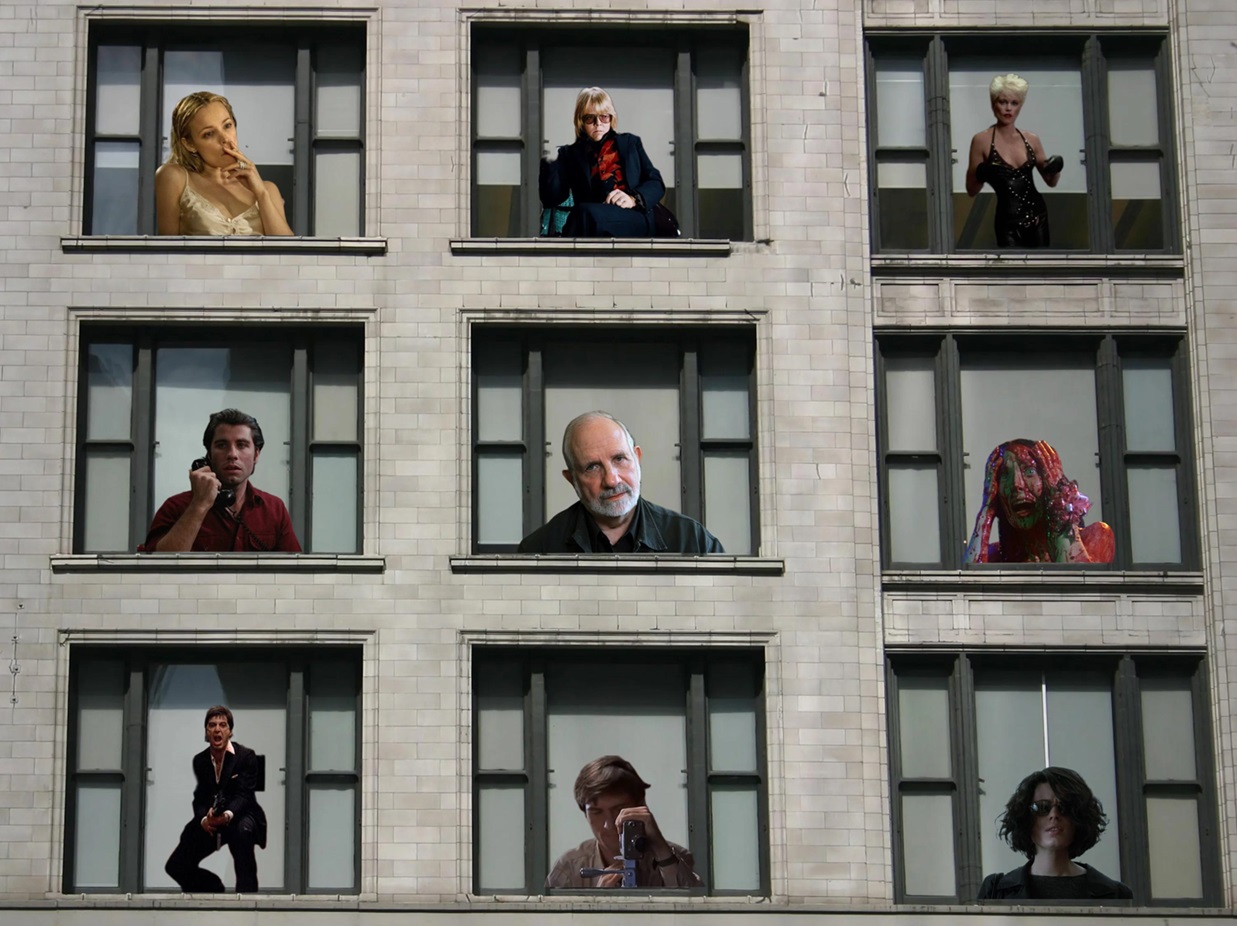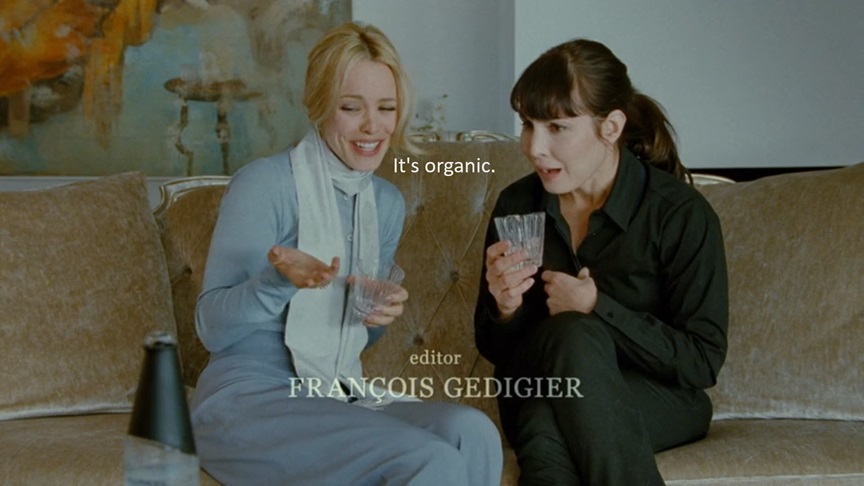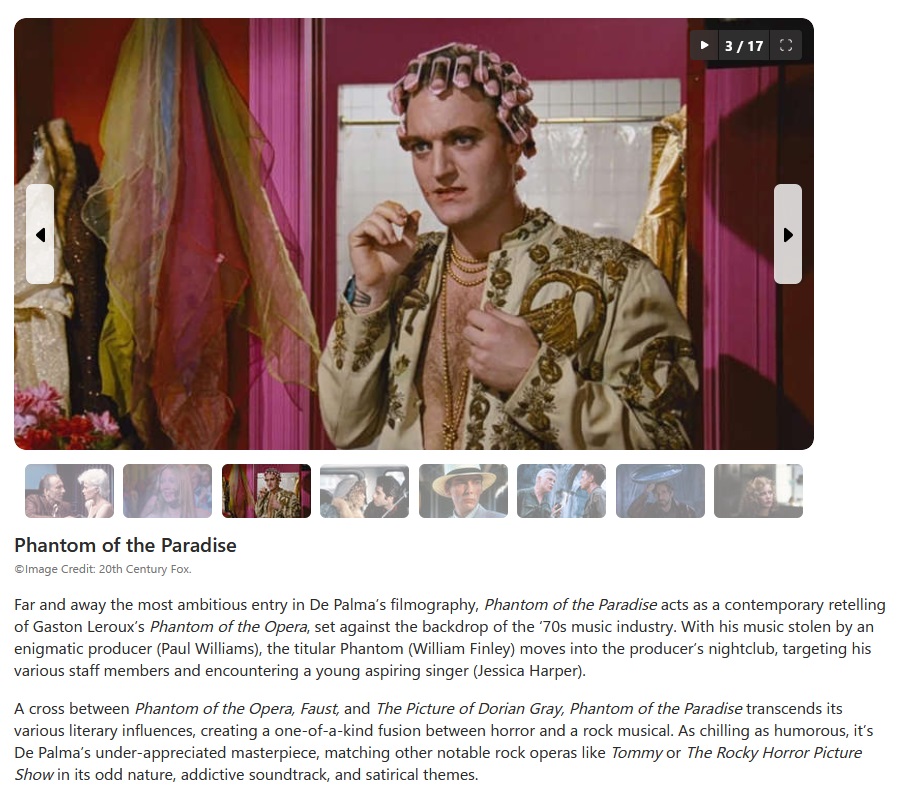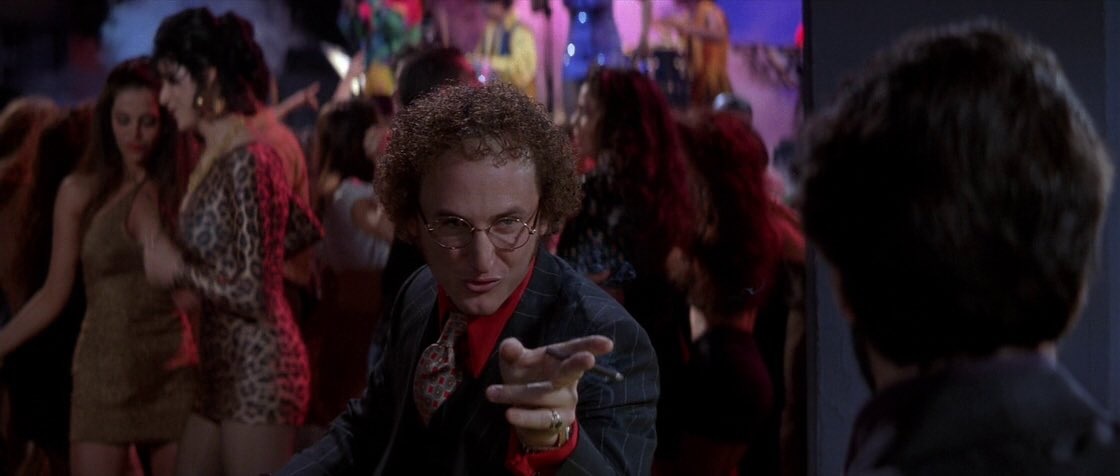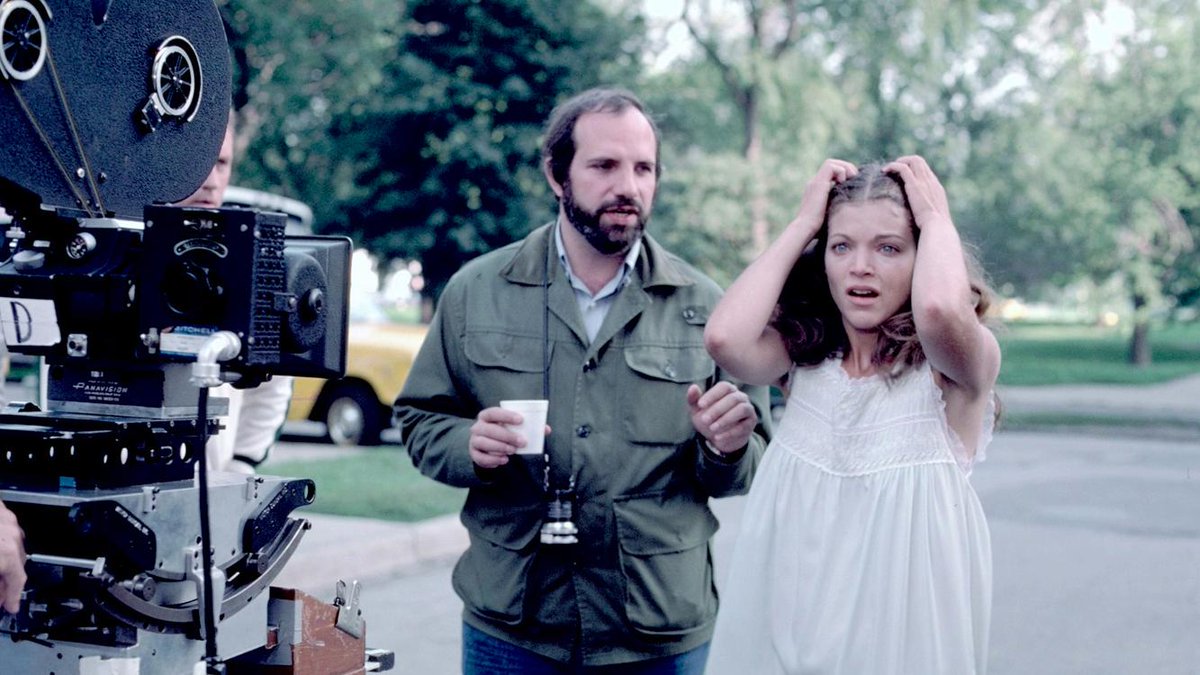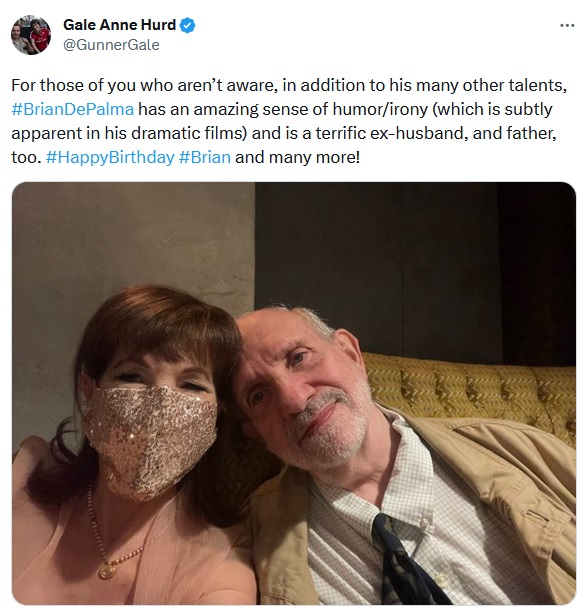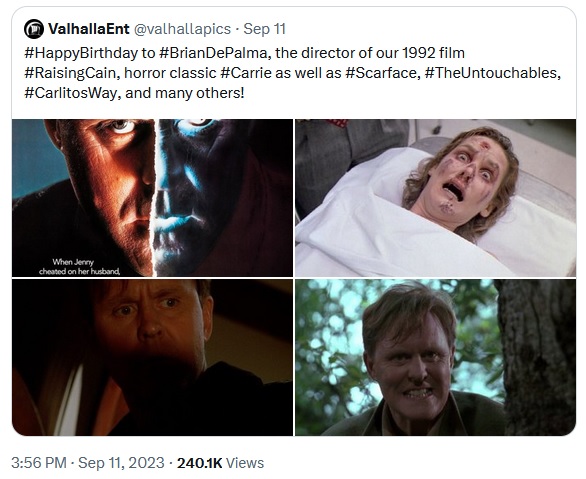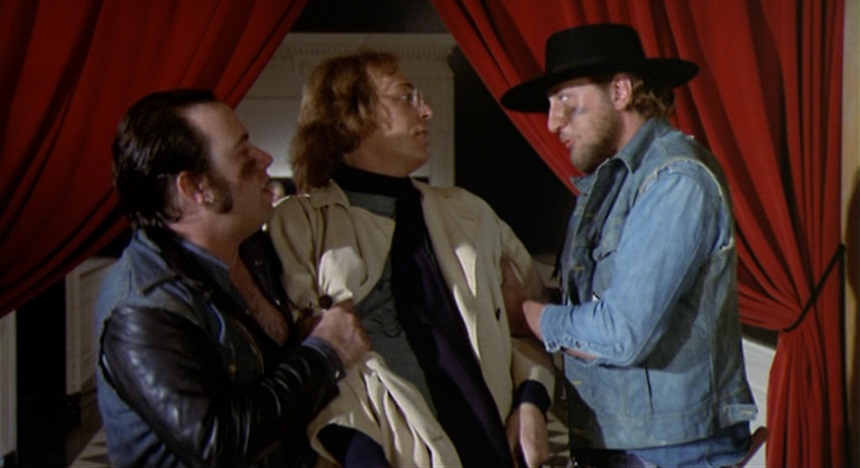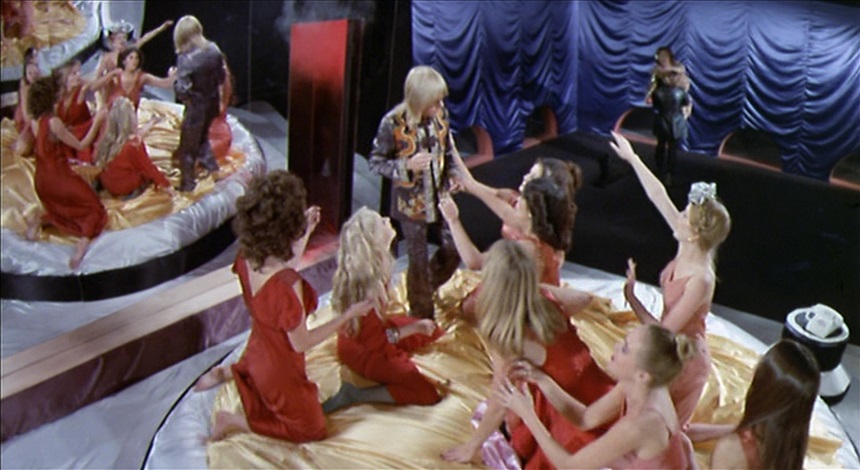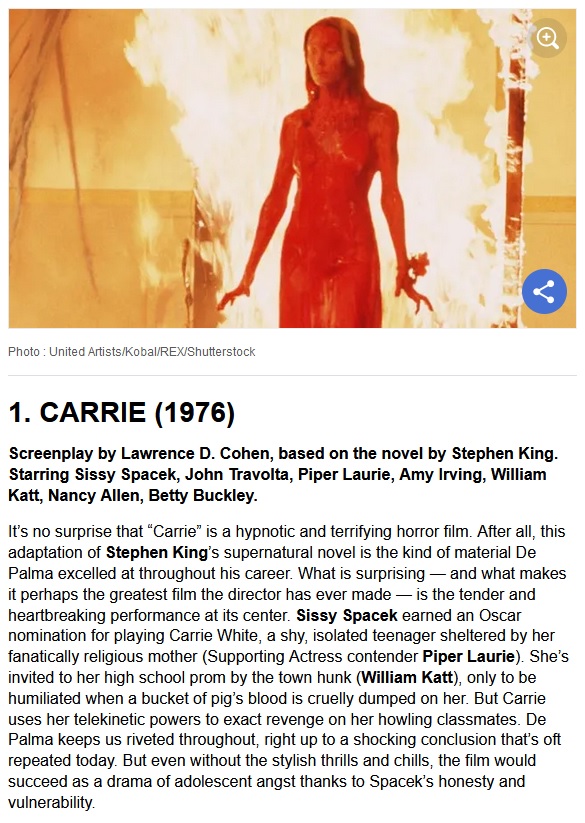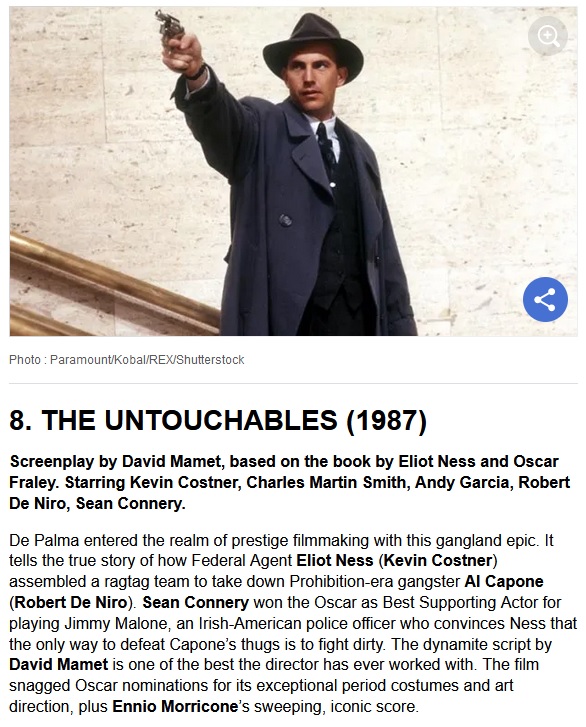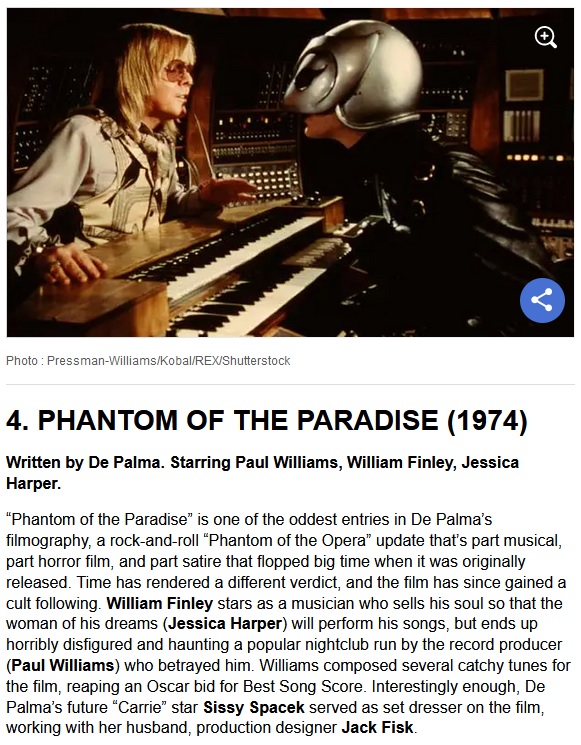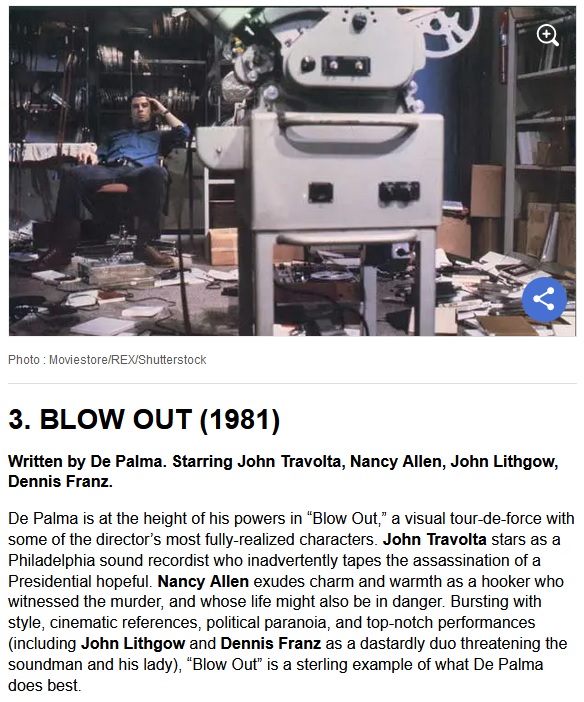HOW TRAUMATIC MEMORIES SHAPE PEOPLE'S PRESENT BEHAVIOR
REVAN OLUKLU AT BAKLAVA BOLSHEVIK LOOKS AT BODY DOUBLE & BLOW OUT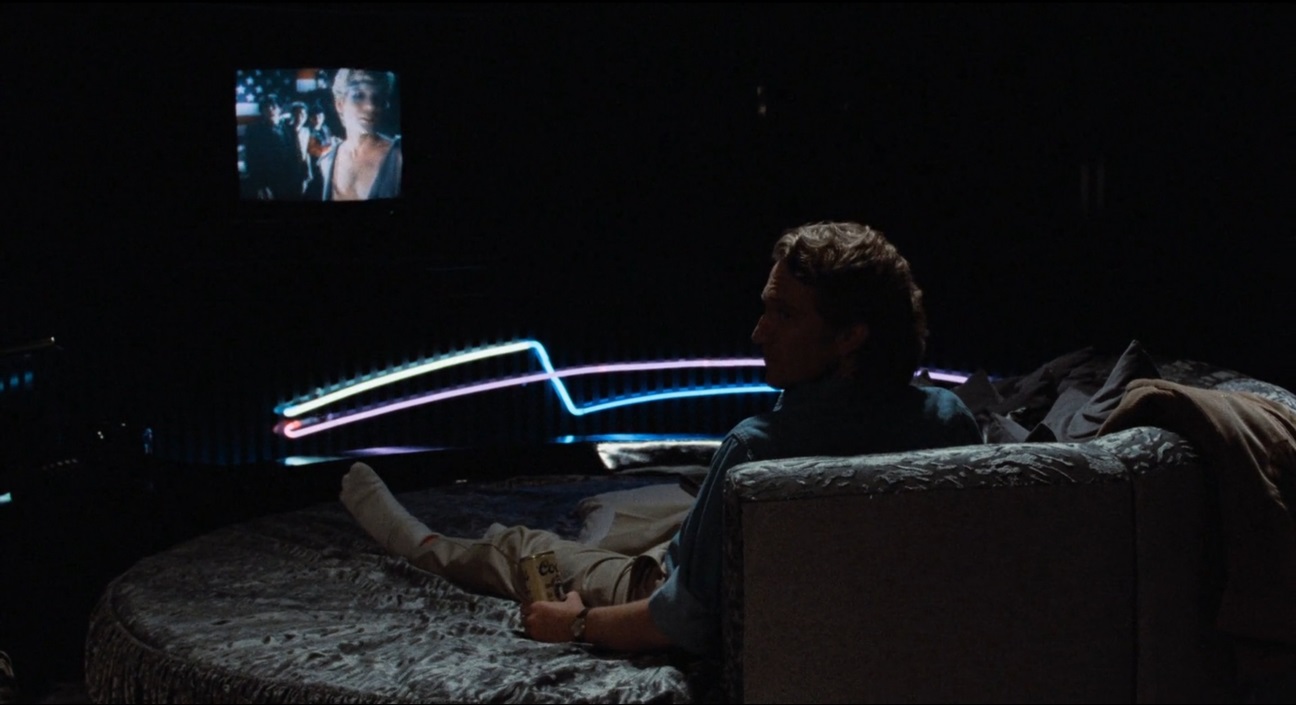
In his monthly blog column "Reading, Watching, Listening" at
Baklava Bolshevik,
Revan Oluklu writes his thoughts after a recent
Brian De Palma double feature:
Last night, I had the pleasure of experiencing a Brian De Palma double feature at Melbourne’s Astor Theatre, showcasing Body Double and Blow Out. These films—brimming with De Palma’s signature style and thematic preoccupations—offer wildly entertaining exploration of prescient concerns that are strikingly relevant today. During the 80’s, De Palma was evidently fascinated with the elusiveness of truth, the perils of male impotence and sexual obsession, and the corruption and unresponsiveness of official institutions. From our historical vantage point, one can only conclude that the man was onto something. Body Double screened first. As the reel started to spin, my friend and De Palma aficionado Hamish warned that I was in for something truly strange. The plot centres around Jake Scully (Craig Wasson), a struggling actor who becomes embroiled in a murder mystery after spying on his beautiful neighbour, Gloria Revelle (Deborah Shelton). In this way, Body Double is a vigorously campified update to Hitchcock’s Rear Window and Vertigo, bringing them into an age where cinematic voyeurism and fantasy have become so powerful as to supplant reality. De Palma’s exploration of male leering here is not mere plot device or pastiche. Instead, it forms a configuration of Hollywood filmmaking into the precise shape of the slobbery masculinity it so often serves.
I don’t believe I’ve seen a more pitiable protagonist than Jake Scully, painfully conjured by the boyish Wasson. The character’s apparent ‘soft’ masculinity, true to life, belies something significantly more perverse. Jake’s immotility, both physical and psychological, channels a pusillanimous current within male subjectivity that has increased in deviance since the film’s release. His sheer obsessive fetishism is the very source of his inability to act decisively upon the world, representing the collapse of the ‘performance’ of masculinity under the weight of its own plasticity. He likes to watch—so he may only watch.
The double feature closed with Blow Out, which follows Jack Terry (John Travolta), a movie sound tech who inadvertently records a car accident that turns out to be a political assassination of the likely incoming President. This film is more intensively concerned with the complexities of uncovering the truth, amidst a web of deception and conspiracy, something Body Double approaches rather cartoonishly. De Palma’s focus on the auditory elements—creepily crafted sounds and eerie silences—serves as metaphor for the struggle to make sense of contradictions within reality (something that is once again beginning to prominently concern filmmakers).
Jack is consumed by a need to piece together sounds and images, cross-referenced with his own memories, to reveal the truth. This quest runs up against both institutional indifference and concerted cover-ups. As liberal democracies continue pioneering authoritarian state censorship, too often claiming the freedom of the few driven by their conscience to become whistleblowers, Jack’s total inability to make objective reality count for something feels prophetic. The film’s genuinely bleak and meanspirited conclusion is among the more audacious narrative choices in a career littered with them.
Both Body Double and Blow Out feature ‘strangler’ killers, who target women with the pervasive violence that is often sensationalised—yet inadequately addressed—by the culture industry and society more broadly. The male protagonists, despite their best efforts, are pathetic failures, unable to save the victims or even themselves. In fact, their feebleness and monomania are necessary elements for De Palma’s female characters to become mortally endangered.
De Palma’s films are also deeply reflexive, providing unflinching critique of Hollywood and even independent cinema. Body Double’s Hollywood setting allows De Palma to satirise the industry’s exploitation of sex and violence, while Blow Out examines the manipulative power of film and media in shaping perceptions of reality. Both films underscore how traumatic memories shape people’s present behaviours—the sole reservoir of sympathy De Palma lends to his leading men. All of this amounts to enthralling, splenetic cinema allowing no respite from the litany of social ills which dominate us.
If you haven’t already, submit yourself to these stupefyingly stylish apogees of De Palma’s vision—a vision that has only grown in salience since the 1980s.
